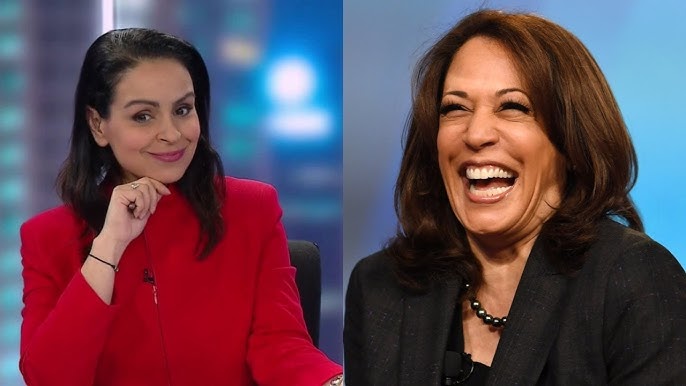Why Kamala Harris Isn’t the Answer
As the 2024 elections approach, voters are carefully considering their options. One name that has repeatedly been in the spotlight is Kamala Harris. While Harris has held significant positions, from her time as a prosecutor to serving as Vice President, there are serious concerns about her qualifications and ability to lead. This article dives into some of her most glaring weaknesses, explaining why she may not be the best choice for the future of the United States.
Lack of Accomplishments: A Resume with Little to Show
Kamala Harris’s resume might seem impressive on the surface, but when you dig deeper, there’s not much to hang her hat on. Her tenure as a prosecutor was marred by controversial decisions, such as her handling of cases involving wrongful convictions and the death penalty. As California’s Attorney General, she faced criticism for failing to hold powerful interests accountable, even when there was clear evidence of wrongdoing.
Moving to her time as Vice President, Harris has struggled to define her role or leave a significant mark. Despite being handed important tasks, such as handling the border crisis, there’s little evidence of success. The border remains a chaotic issue, and Harris’s efforts to address it have been widely viewed as ineffective. Her inability to deliver results in these critical areas raises serious doubts about her capacity to lead at a higher level.
Fuzzy Positions: A Politician Without Clarity
One of the most frustrating aspects of Kamala Harris’s political career is her inability to clearly define and discuss her positions. Whether it’s healthcare, immigration, or economic policy, Harris often dances around the details, leaving voters confused about where she actually stands. This lack of clarity isn’t just a minor flaw—it’s a significant weakness for someone seeking the highest office in the land.
When she does take a stand, her positions are often far to the left, making her the most liberal member of the Senate during her tenure. Her advocacy for policies like the Green New Deal, Medicare for All, and other progressive initiatives puts her at odds with more moderate voters who are concerned about the economic implications of such sweeping changes.
A Stranger to the Truth: Questionable Honesty
Like many politicians, Kamala Harris has a complicated relationship with the truth. Throughout her career, she has made statements that range from misleading to outright false. For instance, during her presidential campaign, she repeatedly claimed to have sued ExxonMobil as California’s Attorney General—something that never actually happened.
This pattern of embellishing her record and avoiding tough questions doesn’t inspire confidence in her honesty or integrity. Voters deserve a leader who is transparent and truthful, qualities that Harris has repeatedly failed to demonstrate.
The Costly Policies: Taxpayers Beware
Kamala Harris’s support for reparations and other expensive policies put forth by the Biden administration is another major concern. While reparations may be a hot topic, the financial burden of such policies would fall heavily on taxpayers—especially the middle class. Harris has also backed other initiatives, like student loan forgiveness and universal basic income, which could further strain the national budget.
The problem isn’t just that these policies are expensive; it’s that Harris seems out of touch with the economic realities that most Americans face. Despite her father being an economist, there’s little evidence that Harris herself understands the complexities of economic policy. Her support for these costly initiatives raises questions about her judgment and her ability to manage the country’s finances responsibly.
Foreign Policy Missteps: Alienating Key Allies
Harris’s stance on foreign policy is another area of concern, particularly her opposition to Israel in its conflict with Hamas. Israel is one of America’s most important allies in the Middle East, and Harris’s critical position risks alienating a key partner in a volatile region. Her approach to foreign policy often seems more about appeasing the progressive wing of her party than about making sound strategic decisions for the country.
This kind of foreign policy stance not only weakens America’s position on the global stage but also undermines relationships that are crucial to maintaining stability in regions of conflict. A leader needs to have a clear and pragmatic approach to international relations, something Harris has yet to demonstrate.
Leadership Issues: A Toxic Workplace
Beyond her policy positions, Kamala Harris has been plagued by reports of being a poor manager. It’s one thing to have disagreements or high turnover in a political office, but Harris’s office has seen a mass exodus of staff, with reports indicating that 92% of her team left. This level of turnover is not just unusual—it’s alarming.
The accounts from former staff members describe a toxic work environment, with Harris often being described as a difficult boss who is quick to blame others for problems rather than taking responsibility. If someone cannot effectively manage a team, how can they be expected to manage the country? Leadership is about more than just holding a title; it’s about inspiring and guiding those around you. Harris’s record in this area leaves much to be desired.
Why Kamala Harris is the Wrong Choice
When considering Kamala Harris for higher office, it’s crucial to look beyond the headlines and assess her actual record. Her lack of significant accomplishments, inability to clearly articulate her positions, support for costly and economically dubious policies, questionable honesty, foreign policy missteps, and poor leadership all add up to a candidate who is simply not ready to lead the nation.
Voters deserve a leader who is clear, competent, and capable of making tough decisions with integrity and wisdom. Kamala Harris’s track record shows that she falls short on all these counts. For those looking for a leader who can truly address the challenges facing America, Harris is not the answer.

